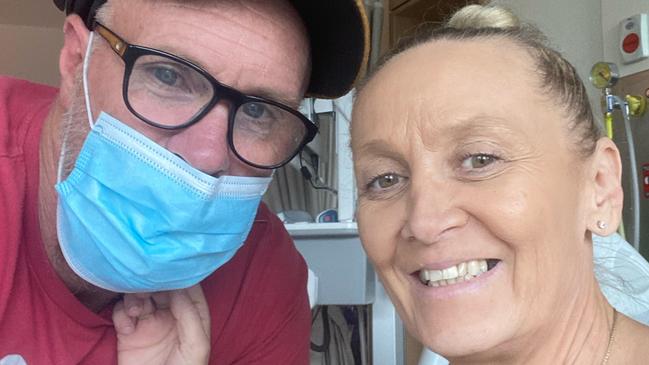Dangerous cancer gene slipping through cracks, study finds
The Peter MacCallum Institute study found more than half the women diagnosed with breast cancer who have a dangerous genetic condition could be slipping through the cracks.

More than half the women diagnosed with breast cancer who have a dangerous genetic condition could be slipping through the cracks, a study has found.
Published in the Medical Journal of Australia, the study found cases were going undetected because of strict eligibility criteria for publicly subsidised genetic testing.
The condition is the presence of gene abnormalities – such as BRCA1 or BRCA2 mutations – that increase the risk of more aggressive or repeat cancers.
The Melbourne-based study – a collaboration between the Peter MacCallum Cancer Centre, the Royal Melbourne Hospital and the Walter and Eliza Hall Institute of Medical Research – provided genetic testing to 474 women who were recently diagnosed with breast cancer. It found 31 of the women carried the mutation, of whom 18 were ineligible under the criteria.
One such woman was Julia di Cesare, for whom the genetic test and the discovery of a BRCA2 mutation changed not only her life but her entire family’s.
“That really changed my treatment,” she said. “I had to have a double mastectomy. If I hadn’t, the chances of me getting breast cancer again were quite high because I had this gene.
“That sort of started the trigger – the avalanche – for me because it was like, wow, this has changed my whole approach in terms of what treatment I was going to get.”
Because these mutations could be hereditary, she raised the alarm with her family. “It turned out that four out of my five siblings all have the BRCA2 gene as well, and one of my nieces who’s in her early 20s,” she said.
“My sister, she had a hysterectomy and she had her ovaries taken out and so forth. And they actually found a little bit of cancer in her uterus. So they were able to remove that and she didn’t have to have chemo.”
Geoff Lindeman, one of the study’s authors, said knowledge of genetic mutations was important in long-term management of cancer. “Knowing that these gene faults are there is really important because it can often help the management decisions for that newly diagnosed cancer patient,” Dr Lindeman said.
“For example, the BRCA1 carrier, rather than having radiotherapy, may end up opting to have a mastectomy and the other breast removed as a preventive measure. It’s also very helpful because these faults are heritable. So identifying a carrier means that their family can also be tested and see whether they are or aren’t at risk.”
Dr Lindeman said the costs of genetic testing had come down dramatically such that offering it to all women newly diagnosed with breast cancer was a viable model of care.
“Similar approaches to universal testing in the UK and the US have shown this to be cost-effective,” he said.
“Now the cost of testing has gone down so much, the speed of sequencing has improved, that it’s more likely that one will be able to deliver a genetic test in real time.”




To join the conversation, please log in. Don't have an account? Register
Join the conversation, you are commenting as Logout